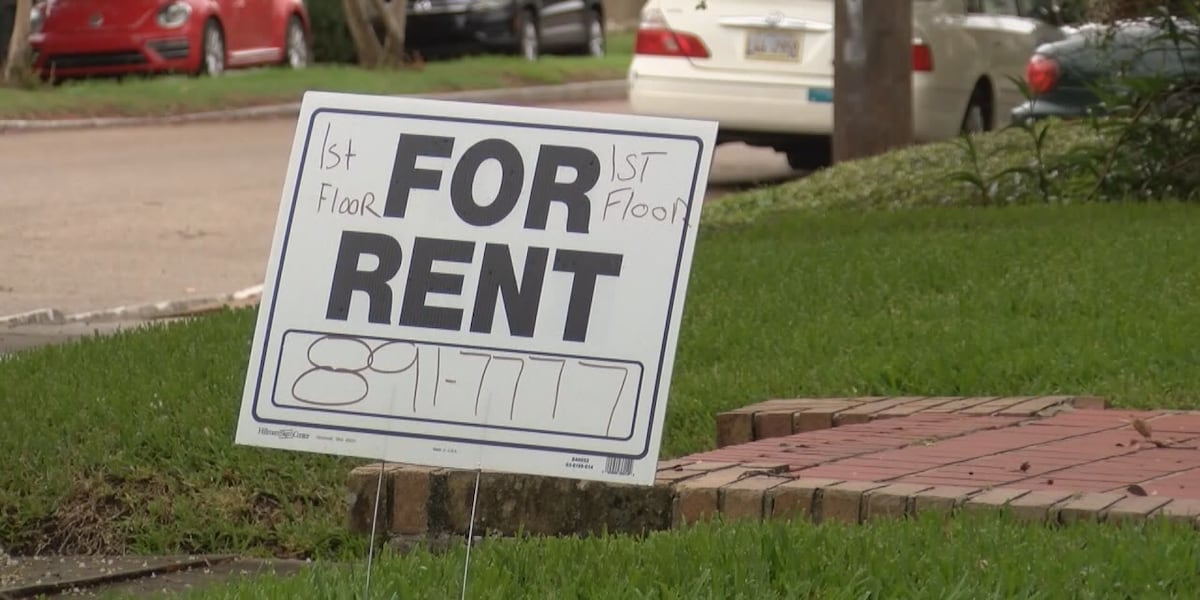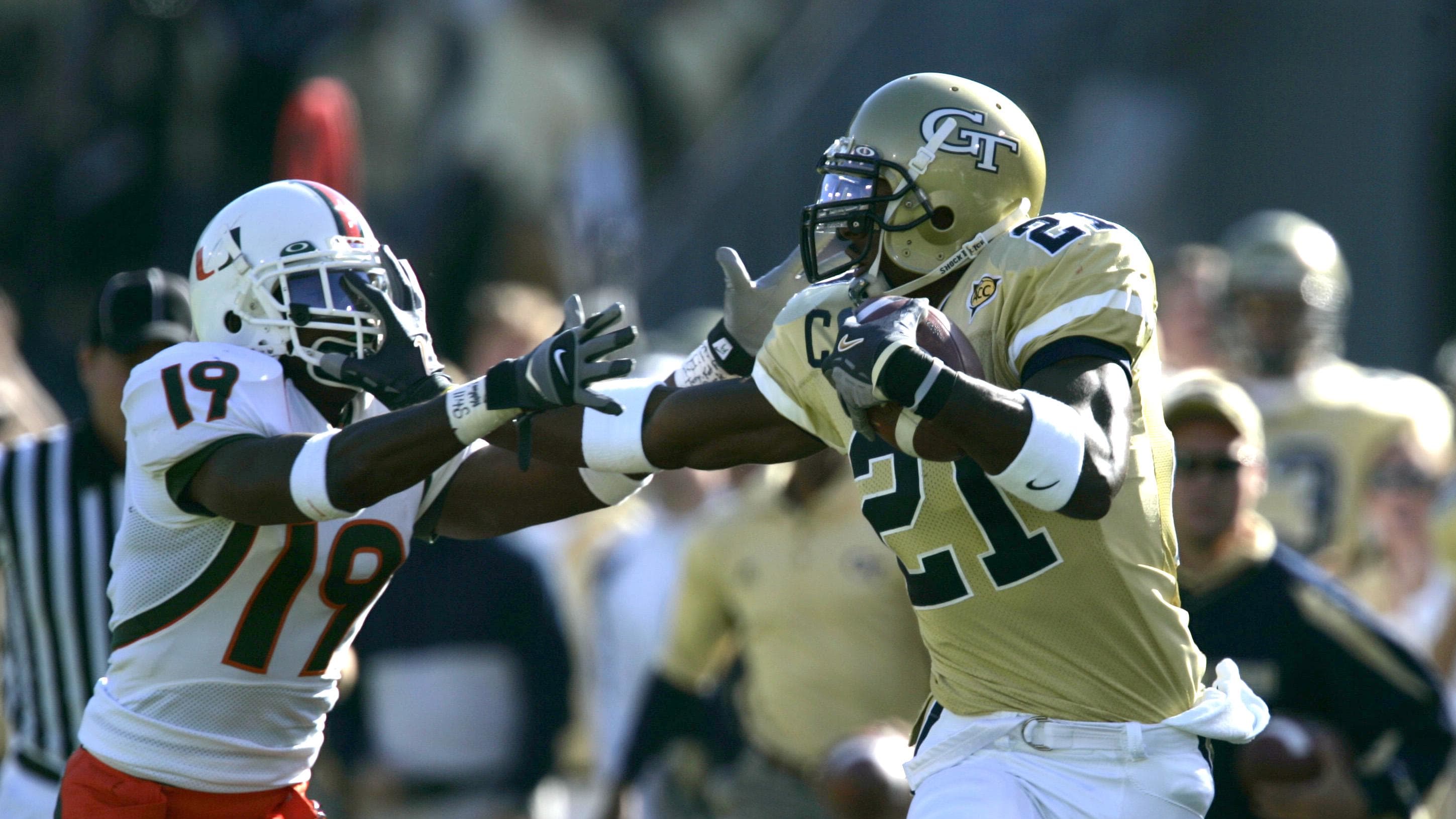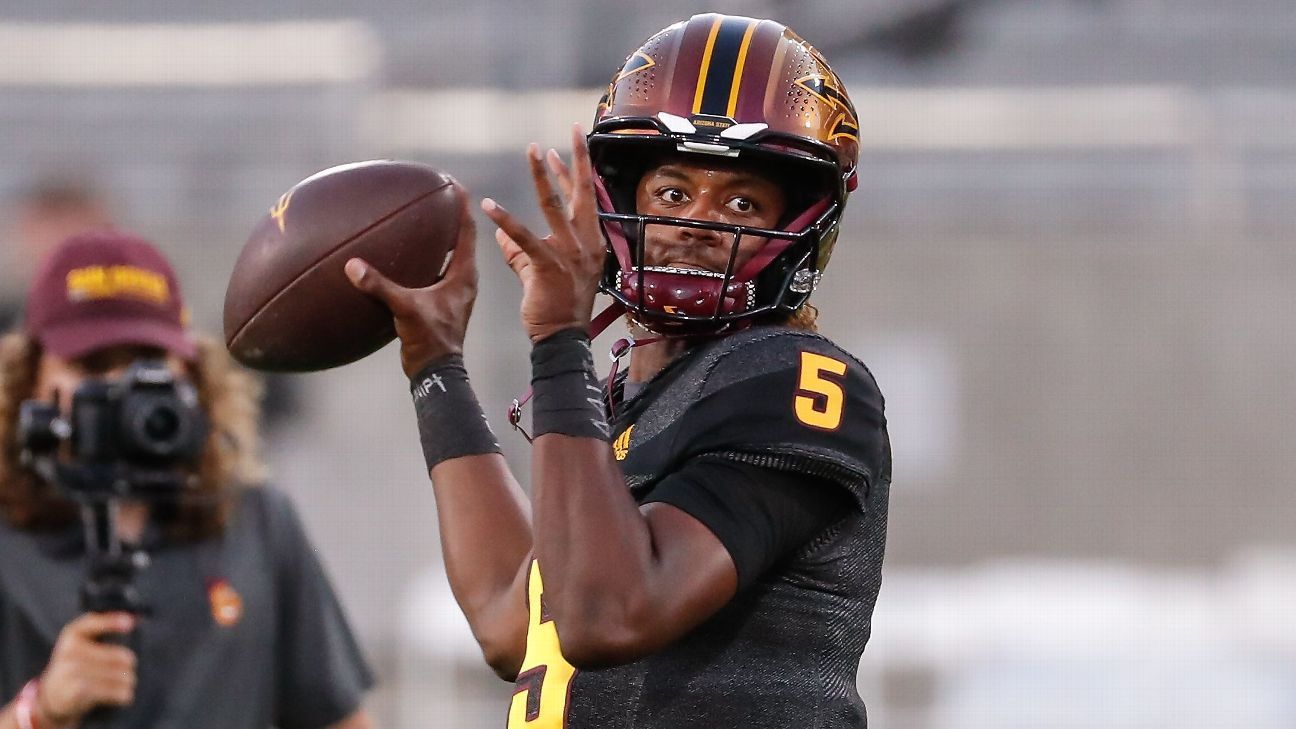An Atlanta-area investigation of alleged election interference by former president Donald Trump and his allies has broadened to include activities in Washington, D.C., and several other states, according to two people with knowledge of the probe — a fresh sign that prosecutors may be building a sprawling case under Georgia’s racketeering laws.
Georgia
Georgia probe of Trump broadens to activities in other states

Fulton County District Attorney Fani T. Willis (D) launched an investigation more than two years ago to examine efforts by Trump and his allies to overturn his narrow 2020 defeat in Georgia. Along the way, she has signaled publicly that she may use Georgia’s Racketeer Influenced and Corrupt Organizations (RICO) statute to allege that these efforts amounted to a far-reaching criminal scheme.
In recent days, Willis has sought information related to the Trump campaign hiring two firms to find voter fraud across the United States and then burying their findings when they did not find it, allegations that reach beyond Georgia’s borders, said the two individuals, who spoke on the condition of anonymity to speak candidly about the investigation. At least one of the firms has been subpoenaed by Fulton County investigators.
Willis’s investigation is separate from the one at the Department of Justice being led by special counsel Jack Smith, but the two probes have covered some of the same ground. Willis has said she plans to make a charging decision this summer, and she has indicated that such an announcement could come in early August. She has faced stiff criticism from Republicans for investigating the former president, and the ever-widening scope suggests just how ambitious her plans may be.
The state’s RICO statute is among the most expansive in the nation, allowing prosecutors to build racketeering cases around violations of both state and federal laws — and even activities in other states. If Willis does allege a multistate racketeering scheme with Trump at its center, the case could test the bounds of the controversial law and make history in the process. The statute calls for penalties of up to 20 years in prison.
“Georgia’s RICO statute is basically two specified criminal acts that have to be part of a pattern of behavior done with the same intent or to achieve a common result or that have distinguishing characteristics,” said John Malcolm, a former Atlanta-based federal prosecutor who is now a constitutional scholar at the conservative Heritage Foundation. “That’s it. It’s very broad. That doesn’t mean it’s appropriate to charge a former president, but that also doesn’t mean she can’t do it or won’t do it.”
Among Willis’s latest areas of scrutiny is the Trump campaign’s expenditure of more than $1 million on two firms to study whether electoral fraud occurred in the 2020 election, the two individuals said. The Post first reported earlier this year that the work was carried out in the final weeks of 2020, and the campaign never released the findings because the firms, Simpatico Software Systems and Berkeley Research Group, disputed many of Trump’s theories and could not offer any proof that he was the rightful winner of the election.
In recent days, Willis’s office has asked both firms for information — not only about Georgia, but about other states as well. Trump contested the 2020 election result in Georgia, Arizona, Michigan, Nevada, Pennsylvania and Wisconsin.
Ken Block, the CEO of Simpatico Software Systems, declined to comment on what he has turned over to investigators. A lawyer for the Berkeley Research Group also declined to comment. A spokesman for Willis declined to comment on the investigation. Lawyers for Trump also declined to comment.
It is unclear if Willis will seek indictments of people for alleged actions that occurred outside of Georgia, such as those who participated in the Jan. 6, 2021, attack on the U.S. Capitol. RICO experts say it’s unlikely she will do so. But, these experts said, the law allows Willis to build a sweeping narrative of an alleged pattern of behavior to overturn the 2020 election, with Georgia as just one piece. Evidence and actions from outside the state, such as Trump’s statements from Washington that inspired some of the rioters and parallel efforts to overturn other states’ results, could be presented as additional evidence that helps establish that pattern.
“The Georgia statute is broadly written” to allow the inclusion of violations of federal law as well as some other states’ laws, said Morgan Cloud, a law professor at Emory University in Atlanta and expert on the state’s RICO law. “For example, acts to obstruct justice committed in Arizona might be relevant if the goal of the enterprise, of the racketeering activity, was to overturn the 2020 presidential election nationally, as well as in Georgia.”
Cloud added that prosecutors in Georgia must prove only that two racketeering crimes occurred under the state RICO statute, but other facts could be used to explain the breadth of an alleged scheme.
Willis’s investigation has already come under scrutiny as a test of the application of state criminal laws to actions that revolved around a federal election — and that in many instances resembled constitutionally protected speech. The probe has prompted a debate, even among those who believe Trump’s efforts were improper, as to whether prosecutors will be able to prove that Georgia crimes were committed.
Her potentially sweeping application of Georgia’s RICO statute could amplify those questions. RICO allows prosecutors to target leaders of alleged criminal enterprises who in previous generations eluded convictions. In Georgia, it can be applied to many patterns of activity that are crimes under state or federal law, such as dogfighting or drug dealing, obstruction or conspiracy — going far beyond its origins as a tool to fight organized crime.
Several legal experts said they expect Willis to home in on possible false statements by Trump and his allies to government officials — one of the crimes that can be prosecuted under Georgia’s RICO statute.
In 2015, Willis attracted national attention as a deputy district attorney by using RICO to prosecute a massive cheating scandal in Atlanta’s public schools that sent eight teachers and administrators to prison.
Prosecutors in Georgia have obtained RICO convictions where the pattern of racketeering activity included actions in other states. In one notable case, prosecutors in Richmond County got convictions for several men they accused of kidnapping a Sam’s Club manager in a robbery scheme in 1998, stuffing him into the trunk of a car, driving to South Carolina and killing him by setting the car on fire.
In the Trump case, Willis has said she is focused on the phone calls Trump made to multiple Georgia officials seeking to reverse his defeat, his campaign’s efforts to persuade the Georgia legislature to declare Trump the winner, the gathering of Trump’s electors to cast electoral college votes for Trump after Joe Biden had been declared the winner in the state and his campaign’s potential involvement in an unauthorized breach of election equipment in rural Coffee County, Ga.
Dozens of people participated in those efforts, according to reams of emails, texts and deposition transcripts from the House investigation into the Jan. 6 attack: Trump lawyers such as Rudy Giuliani, Jenna Ellis, Sidney Powell, Ray Smith and John Eastman; senior advisers including then-chief of staff Mark Meadows; Jeffrey Clark, then a senior official at the Department of Justice; and Georgia GOP leaders including the party chairman, David Shafer, and its then-finance chairman, Shawn Still.
Multiple legal experts have said that persuading a jury that those actions broke the law could prove difficult. The debate reflects the unprecedented nature of Trump’s attempt to overturn the 2020 election. While the effort immediately prompted calls to hold him and others criminally responsible, identifying laws that apply to such a scenario has proven challenging — and could help explain why Willis’s investigation is in its third year. That dynamic applies both to the Georgia investigation as well as the special counsel’s federal probe.
Most of those scrutinized in the Willis investigation have maintained that they did nothing wrong. They had every right to pursue claims of anomalies, many have said, particularly given how close Biden’s margin of victory was in Georgia, two-tenths of 1 percent.
“There’s not a single thing that I did in pursuit of election integrity that I have any regret or concern about,” Shafer said in a recent GOP address.
“It’s dangerous,” said Malcolm, the Heritage scholar, referring to the investigation in Georgia of contingent electors. “What you’re doing is tainting political activists who are trying to play a part in an election, who are trying to help their candidate, and all of a sudden you’re launching a criminal investigation.”
Norm Eisen, who served as special counsel to the House of Representatives’ first impeachment of Trump, over his pressure campaign with Ukraine, cautioned that it’s too soon to judge the investigation, but he believes the overall case is a “strong one.”
“Either skepticism or belief is premature because we are not privy to all the evidence that the district attorney has amassed at this point,” said Eisen, a criminal defense attorney and senior fellow at the Brookings Institution. “It just depends on the evidence.”
Eisen was among the authors of a lengthy examination of the applicable law in the Fulton investigation, concluding that possible crimes, besides racketeering, included making false statements and conspiracy to commit election fraud.
Malcolm said he agrees with the report’s conclusion that Trump is at substantial risk of being charged. But he believes much of its analysis is “slanted and misguided.”
Trump’s call to Georgia
Willis launched her probe shortly after Trump’s Jan. 2, 2021, phone call to Georgia Secretary of State Brad Raffensperger (R), during which Trump said, “I just want to find 11,780 votes.” That number would have given Trump exactly the votes he needed to reverse Biden’s victory.
While Trump has been widely rebuked for that comment and others during the roughly one-hour call, it’s unclear to some legal analysts if uttering those words broke the law.
Trump did not spell out that he wanted Raffensperger to break the law; nor did he directly ask the state official to find the votes, which might have given Willis a clearer path to seek a felony charge against him, such as solicitation to commit election fraud. Instead, the comment could be interpreted as the then-president simply spelling out the math that would allow him to reverse Biden’s victory.
Trump may have hurt himself, however, in his appearance last month at a town hall broadcast by CNN, during which he explained that he called Raffensperger to tell him, “You owe me votes because the election was rigged.” Willis could offer the statement as evidence of Trump’s intent for Raffensperger to switch votes, several legal experts said.
“Subjects of criminal investigation aren’t usually reckless enough to go on national television and admit their corrupt intent,” Anthony Michael Kreis, a constitutional law professor at Georgia State University, wrote on Twitter after the appearance. “But Donald Trump just handed Fani Willis a new piece of evidence and tied a bow on it.”
Willis has also investigated appearances by Giuliani and other Trump allies before Georgia lawmakers in the days immediately after the 2020 election, during which they described fantastical conspiracies of voting machines swapping Trump votes for Biden votes and poll workers in Atlanta triple-counting suitcases full of ballots.
It’s a felony in Georgia to make a false statement in a government matter, but Willis must prove that Giuliani and the others knew that what they were saying was false. Giuliani was not speaking under oath, so there is no exposure for perjury charges, and some legal experts say he might also be protected under the First Amendment.
Willis may also examine the actions of Clark, then the acting assistant attorney general over the DOJ’s civil division, who wanted to send a letter to Georgia Gov. Brian Kemp (R) and state legislative leaders falsely claiming that the department was investigating “significant concerns” in the 2020 election and urging them to call a special session of the General Assembly to appoint Trump’s electors to cast Georgia’s electoral college votes. Senior DOJ officials blocked Clark from sending the draft.
Whether the Republican electors who convened to cast electoral college votes for Trump on Dec. 14, 2020, broke the law is perhaps even murkier.
Georgia was among seven states where the Trump campaign and local GOP officials arranged for alternate electors to convene with the stated purpose of preserving legal recourse while an election challenge made its way through the courts. Willis has offered some form of immunity to 12 of the 16 electors, according to three individuals with knowledge of the investigation. Not counted among those with immunity are Still, who is now a Georgia state senator, and Shafer.
Shafer helped organize the meeting and presided over it. Still has been described in news reports as having blocked members of the media from entering the room before the meeting started. Prosecutors have apparently focused on those activities in their questions to various witnesses, according to three other people with knowledge of the interviews. Prosecutors have also inquired about who mailed the electoral certificates to Washington, they said.
One of Shafer’s lawyers, Holly Pierson, wrote in a letter to Willis that Shafer had no knowledge that Trump allies would propose, later in December, to use the alternate elector certificates to block the counting of electoral votes for Biden in the Jan. 6 joint session of Congress. It is not even clear if the plan to thwart the joint session had been hatched by Dec. 14, 2020, the day the electors met. The House committee did not refer Shafer or Still to the DOJ for federal prosecution. Pierson declined to comment.
As the nation waits to see what, if any, charges Willis seeks, one key question is what evidence she has gathered that Trump, his campaign or allies knew about all the different efforts to reverse Biden’s victory. And that’s just the first step — getting to trial and persuading a jury may present even more formidable challenges.
“Proving all this beyond a reasonable doubt,” Kreis said, “that’s going to be the hard part.”

Georgia
House Bill 404 signed into law, giving Georgia renters more protection

COLUMBUS, Ga. (WTVM) – Georgia Governor Brian Kemp signed House Bill 404 into law Monday, April 22 balancing the power between renters and landlords, and giving renters extra protection.
It’s called Safe at Home Act. One of the things this new law says is that landlords have to provide rental housing that is “fit for human habitation.”
“Whether we’re talking about the power source. Whether we’re talking about water supply. Whether we’re talking about the actual living conditions. Whether we’re talking about the outside conditions, the roof, things of that nature just the basic things that make a home habitable,” said Georgia Representative of House District 140, Teddy Reese.
Reese said the law creates standards that can be enforced by courts.
“Prior to that a judge would actually be out of line to tell an individual that you got to go fix this you got to go fix that. There were very basic things. Well this expands that,” he said.
Columbus tenant Terry Williams said he’s been renting his home since April of last year.
“I’m just tired of living here. Everything in here is contaminated,” he said.
However, he said he was not ready for the amount of problems that followed.
“Two months I say give or take, I been noticing it had been raining in the house, leaked roof, mildew, mold, things of the wall not measured properly, Different bugs, insects coming in outside of the house,” he said.
Williams also showed News Leader 9 leaking hot water heater, rotten flooring, and exposed pipes and insulation in the back of the home.
He said he’s made multiple calls to his landlord along with work orders, but nothing is being done to make the needed repairs.
According to him, his next steps are seeking legal action.
“At least a new justice is coming out. So they’ll pretty much learn they lesson,” he said in regards to the new law.
The law also gives a three day grace period for renters before an eviction notice can be filed, and it caps security deposits to a two month rent equivalent. It will go into effect July 1.
“Before Governor (Brian) Kemp signed that bill, if you missed paying your rent by one day, that Landlord could go down there and file an eviction. Now under state law there is a three day grace period that an individual can go pay that rent and that eviction will not be applicable,” Reese said.
Copyright 2024 WTVM. All rights reserved.
Georgia
Looking Back at Every Georgia Tech First Round Pick Ahead of Tonight’s 2024 NFL Draft

Happy NFL Draft season to all who celebrate.
The first round of the 2024 NFL Draft is going to commence tonight and while there are not going to be any Georgia Tech Yellow Jackets selected tonight, some of the best NFL players of the last 15-20 years have come from Atlanta and were selected in the first round. Whether it was Calvin Johnson (one of the greatest receivers of all time), Demaryius Thomas, or Derrick Morgan, the Yellow Jackets have had several impact players go in the first round and turn out to be good NFL players. That is something that current head coach Brent Key is working to get back toward.
Lets take a look back at the first round picks that Georgia Tech has produced.
Eddie Prokop– No. 4 Overall, 1945 (Boston Yanks)
In the 1944 Sugar Bowl Prokop led his #13 Yellow Jackets to 20–18 victory over #15 ranked Tulsa. In that game, he rushed for 199 yards, threw a touchdown, and kicked two extra points.[3] The Sugar Bowl did not award a game MVP until 1948. (Per Wikipedia)
Larry Morris– No. 7 Overall, 1955 (LA Rams)
Morris was a four-year starter and a two-way player at center and linebacker positions for the Georgia Tech Yellow Jackets. Morris was also selected as three times first-team All-SEC and a team captain as a senior. He played during coach Bobby Dodd’s most successful seasons at Georgia Tech. The Yellow Jackets had a 40-5-2 record over Morris’ four seasons, won two SEC titles, four bowl games, and a share of the 1952 national championship with a 12–0 record. In his final game as a Yellow Jacket against rival Georgia in Athens on November 27, 1954, he played the entire game and was credited with 24 tackles as his team won 7–3. He was later named to the All-SEC 25-year team spanning 1950–1974 and in 1992 was inducted into the College Football Hall of Fame, one of 12 Tech players there (per Wikipedia)
Rufus Gutherie– No. 10 Overall, 1963 (LA Rams)
Eddie Lee Ivery- No. 17 overall, 1979 (Green Bay Packers)
He played at Georgia Tech from 1975-78 and remains the Yellow Jackets’ all-time leader in single-game (356 vs. Air Force – Nov. 11, 1998) and single-season (1,562 – 1978) rushing yards. He also finished his career as the Jackets’ all-time leading rusher with 3,517 career yards and still ranks third in Tech history in career rushing yardage. He went on to be selected No. 17 overall by the Green Bay Packers in the 1979 NFL Draft and rushed for 2,933 yards and 23 touchdowns in eight seasons with the Packers (1979-86). He was inducted into the Georgia Tech Sports Hall of Fame in 1982 and graduated from Georgia Tech in 1992.
Kent Hill- No. 26 Overall, 1979 (Los Angeles Rams)
Hill had a super successful NFL Career as an offensive lineman from 1979-1987, becoming a second team All-Pro twice (1980, 1985) and was a five-time pro bowler (1980, 1982-1985). After he retired, Hill was the director of student athlete development from 1989-1998.
Marco Coleman- No. 12 Overall , 1992 (Miami Dolphins)
From Georgia Tech Athletics:
Coleman played 14 seasons in the National Football League (1992-2005) after his hall-of-fame career at Georgia Tech (1989-91)
Coleman racked up 27.5 sacks and 50 tackles for loss in just three seasons as an outside linebacker for the Yellow Jackets, which were both school records at the end of his playing career and remain ranked fourth in the program’s all-time annals despite the fact that he played in only 34 collegiate games. He was named first-team all-America and all-Atlantic Coast Conference as a sophomore (1990) and junior (1991). As a sophomore in 1990, he led the ACC with 13 sacks and helped Georgia Tech claim its fourth national championship with an 11-0-1 campaign and a convincing 45-21 win over Nebraska in the Florida Citrus Bowl.
He went on to play 14 seasons in the NFL with the Dolphins (1992-95), San Diego Chargers (1996-98), Washington Redskins (1999-2001), Jacksonville Jaguars (2002), Philadelphia Eagles (2003) and Denver Broncos (2004-05). He was named Sports Illustrated’s 1992 NFL Rookie of the Year after tallying 84 tackles and six sacks and went on to record 610 tackles, 65.5 sacks and 18 forced fumbles in 14 pro seasons. He earned a spot in the Pro Bowl after registering a career-high 12 sacks for the Redskins in 2000.
He retired after the 2005 season.
Keith Brooking, No. 12 Overall- 1998 (Atlanta Falcons)
From Evan Birchfield at the Falcaholic:
“At Georgia Tech, Brooking became the all-time leading tackler in Georgia Tech history with 467 tackles. He was voted a team captain by his teammates and was a finalist for the prestigious Dick Butkus Award. Brooking averaged 13.3 tackles per game in 1995 and in 1996 he had the second-most tackles per game in the ACC with 13.4 per game. His collegiate career ended with a victory over West Virginia in the Carquest Bowl, where he recorded an interception and 15 tackles.”
Brooking is one of the best players in Georgia Tech history and went on to have a fantastic career for the Atlanta Falcons.
Calvin Johnson, No. 2 overall- 2007 (Detroit Lions)
From ProFootballHOF:
“Johnson was an immediate contributor to Chan Gailey’s offense, recording 48 catches, 837 receiving yards and seven touchdowns in his first season in Atlanta. He was named ACC Rookie of the Week four times as a freshman and immediately garnered national attention. The week-by-week accolades helped Johnson earn first-team All-ACC honors as a freshman, a rare accomplishment.
This momentum carried into Johnson’s sophomore season. He caught 54 passes for 888 yards and six touchdowns in 12 games, again earning a spot on the All-ACC first team.
Johnson entered his junior season with a lot of hype, appearing on almost every preseason list for the Biletnikoff Award and Heisman Trophy. He lived up to the expectations and produced his best season, becoming one of the greatest Yellow Jackets of all time. Johnson recorded 76 catches for 1,202 yards and 15 touchdowns, production that earned him a third consecutive first-team All-ACC bid.
He was named the ACC Player of the Year and won the Biletnikoff Award, with most knowing that his junior season would be his final at Georgia Tech. Johnson was one of the most popular wide receiver prospects in over a decade, and the NFL was calling his name.
Georgia Tech Records
- Career Receiving Yards — 2,927
- Receiving Yards in a Season — 1,202
- Career Receiving Touchdowns — 28
- Receiving Touchdowns in a Season — 15
- Career 100-Yard Games — 13
- 100-Yard Games in a Season — 7
Awards
- 2006 Biletnikoff Award
- 2006 ACC Player of the Year
- Two-time first-team All-American
- Three-time first-team All-ACC
- 2004 ACC Rookie of the Year
- Four-time ACC Rookie of the Week
Derrick Morgan, No. 16 Overall- 2010 (Tennessee Titans)
From Georgia Tech Athletics:
“A defensive end from Coatesville, Pa., Morgan recorded 19.5 sacks and 29.5 tackles for loss in three seasons for the Yellow Jackets (2007-09) and helped lead Georgia Tech to back-to-back ACC Coastal Division titles in 2008 and 2009.
He had a breakout campaign as a junior in ’09 when he amassed 12.5 sacks and 18.5 tackles for loss, totals which still rank fourth and seventh, respectively, in Georgia Tech history. In addition to being the 2009 ACC Defensive Player of the Year, he was a consensus first-team All-American. He remains the only Yellow Jacket to ever be named ACC Defensive Player of the Year.
Morgan entered the NFL Draft following his junior campaign and was selected No. 16 overall by the Tennessee Titans, making him the ninth-highest selection in Tech history. He went on to register 44.5 sacks and 306 tackles in nine NFL seasons (2010-19), all with the Titans. He retired from professional football prior to the 2019 season.”
Demaryius Thomas, No. 22 Overall- 2010 (Denver Broncos)
Thomas ranks among the Yellow Jackets’ all-time leaders in career receptions (113* – 10th), career receiving yards (2,135* – sixth), single-season receiving yards (950, 2009* – seventh), career yards per reception (18.9* – tied for sixth), single-season yards per reception (25.1* – second), career touchdown receptions (13* – tied for seventh), career 100-yard receiving games (6 – seventh) and consecutive games with a reception (29* – tied for fourth) (Per Georgia Tech PR).
The Montrose, Ga., native owns two of Georgia Tech’s top 20 single-game receiving yardage totals – 230 vs. Duke in 2008 (second) and 174 vs. Mississippi State in 2009 (16th). Selected No. 22 overall in the 2010 NFL Draft by the Denver Broncos (10th-highest NFL Draft pick in Georgia Tech history), Thomas amassed 724 receptions for 9,763 yards and 63 touchdowns in 10 NFL seasons with the Broncos (2010-18), Houston Texans (2018) and New York Jets (2019). He was a five-time Pro Bowl selection and won Super Bowl 50 as a member of the Broncos.
Georgia
QB Rashada heading to Georgia for 2024 season

Quarterback Jaden Rashada is committing to play for Georgia after spending one season at Arizona State, according to his agent Henry Organ of Disruptive Sports.
Rashada will join the Bulldogs after appearing in three games for the Sun Devils last season, passing for 485 yards with four touchdowns and three interceptions.
ESPN’s No. 31 overall recruit in the 2023 class initially signed with Florida but was released from his national letter of intent after a $13 million name, image and likeness agreement fell through with the school’s Gator Collective. The Pittsburg, California, native eventually signed with Arizona State, where his father, Harlen, played defensive back from 1992 to 1994.
Rashada, who has four years of eligibility left, opened the 2023 season as Arizona State’s starter but missed most of the year with a knee injury. The 6-foot-4, 185-pound Rashada missed spring practice with the Sun Devils following offseason thumb surgery.
Georgia is returning 2023 starter Carson Beck, who led the Bulldogs to a 12-1 record in his first season as their No. 1 quarterback. Redshirt freshman Gunner Stockton, who attempted nine passes in 2023, is also among the quarterbacks on the roster.
Information from ESPN’s Pete Thamel and Adam Rittenberg was used in this report.
-

 World1 week ago
World1 week agoIf not Ursula, then who? Seven in the wings for Commission top job
-

 News1 week ago
News1 week agoGOP senators demand full trial in Mayorkas impeachment
-

 Movie Reviews1 week ago
Movie Reviews1 week agoMovie Review: The American Society of Magical Negroes
-

 Movie Reviews1 week ago
Movie Reviews1 week agoFilm Review: Season of Terror (1969) by Koji Wakamatsu
-

 Movie Reviews1 week ago
Movie Reviews1 week agoShort Film Review: For the Damaged Right Eye (1968) by Toshio Matsumoto
-

 World1 week ago
World1 week agoCroatians vote in election pitting the PM against the country’s president
-

 World1 week ago
World1 week ago'You are a criminal!' Heckler blasts von der Leyen's stance on Israel
-

 Politics1 week ago
Politics1 week agoTrump trial: Jury selection to resume in New York City for 3rd day in former president's trial















